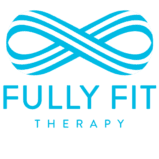It's been a while since my last post. Again just very busy with treatments which I can't complain, it's great to be back and busier than ever!
I am currently in the process of hiring at least one other team member to start expanding into additional treatment options and to just balance my workload a bit. So that has also taken up a lot of time sorting out hiring!
Lastly before I get into a recent topic of discussion, just a reminder I am still doing my referral discount offer - That's £20 off the initial session!
Onto my recent discussion with a long term client of mine-
What is a Herniated Disc?
In most cases a herniated disc itself is not painful. The pain is caused by the material leaking out of the disc that pinches, inflames, or irritates a nearby nerve. That is causing the nerve root pain - sharp, shooting pains that radiate to other parts of the body, such as from the low back down the leg or from the neck down the arm.
There are many reasons that you might decide massage for a herniated disc is right for you.
- General muscle and joint stiffness or soreness
- Feelings of anxiety, stress, and even depression
- Trouble completing daily activities due to stiffness and pain
- Good past experiences with massage
- Poor pain cycle: stiffness is causing movement avoidance, which in turn is causing more stiffness and pain
- Your herniated disc is affecting your sleep quality
- You think one might help!
Massage therapy can help reduce muscle tension and muscle spasms, which may add to back or neck pain. Muscle tension is especially common around an unstable spinal segment where a disc is unable to provide necessary support. Massage helps disc herniation by reducing tension in the muscles around the spine. By relieving muscle tension, pressure on the disc is reduced, which eases disc compression.
Exercises can also play a big part in helping counteract a disc herniation. Although I'll leave that for another day as that is a whole topic within itself
